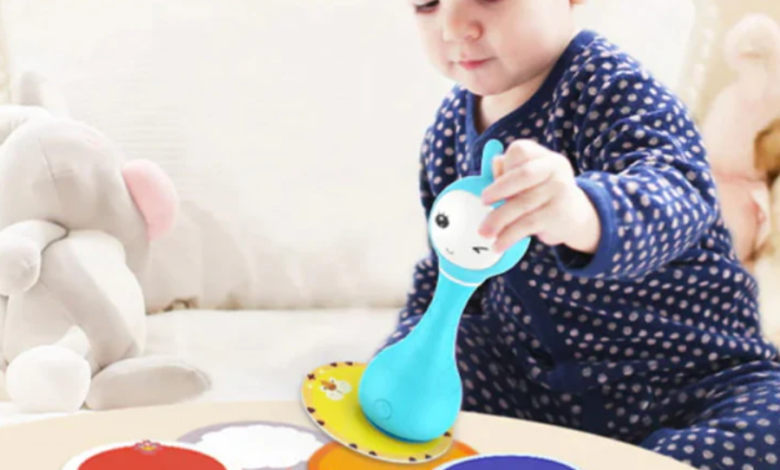Early Cognitive Milestones in Newborns: A Month-by-Month Guide

Understanding your newborn’s cognitive development is essential to ensure they reach their full potential. Each month, babies achieve new milestones that reflect their growing awareness and abilities. By recognizing these milestones, parents can offer the right support to nurture their baby’s brain development. Many parents often wonder, what are some intellectual stages of a newborn, and how can they best support this early growth? This guide outlines the cognitive milestones you can expect during the first six months of your baby’s life.
What Are Cognitive Milestones?
Cognitive milestones are specific skills and abilities that most children achieve by a certain age. They indicate how a baby’s brain is growing and developing. These include observing, learning, remembering, and interacting with the environment. Milestones are essential indicators, helping parents and healthcare providers ensure a baby’s development is on track.
Babies develop at their own pace, but being aware of these milestones helps parents provide optimal support. Each baby may reach these milestones slightly earlier or later, so it’s essential to observe your baby’s unique progression.
Month 1: Sensory Awareness Begins
In the first month, a newborn’s cognitive development revolves around sensory awareness. Your baby begins to recognize and respond to different stimuli through their senses—sight, sound, touch, taste, and smell. They will start to follow objects with their eyes, turn towards familiar voices, and display a sense of comfort when held. This is the foundation of their cognitive abilities and sets the stage for future learning.
Additionally, babies begin to learn the differences between their parents’ faces and voices, establishing basic yet vital connections. Providing gentle sensory experiences helps stimulate this early cognitive awareness.
See also: Discover Dubai in Style: The Ultimate Sports Car Rental Experience
Month 2: Early Recognition and Response
By the second month, a newborn’s ability to recognize and respond to familiar people and objects becomes more apparent. They start to differentiate between faces and may respond with smiles, coos, and gurgles. These early social interactions are critical for emotional and cognitive development.
Your baby’s increased alertness and attention to their surroundings signify growing brain activity. Encouraging face-to-face interaction and talking to your baby helps strengthen these early cognitive skills. Responding to your baby’s cues reinforces bonding and boosts their confidence.
Month 3: Developing Focus and Memory
As your baby reaches three months, their focus and memory start to develop. They can now track moving objects with their eyes and pay attention to more detailed patterns and colors. This improved visual perception is essential for recognizing familiar faces and objects in their environment.
Memory skills also begin to emerge, allowing your baby to remember certain sounds, faces, and routines. Incorporating repetition in daily routines reinforces these memories, promoting a sense of familiarity and security. Engaging their senses with colorful toys and sounds will further boost cognitive development.
Month 4: Improved Visual and Auditory Processing
By the fourth month, babies exhibit significant leaps in visual and auditory processing. They start to recognize the difference between various sounds and may turn their heads in response to voices and noises. Visual tracking becomes more refined as babies follow objects more fluidly.
This period marks a time of exploration where babies begin to link sounds to actions and objects. Playing peekaboo, introducing musical toys, and offering a variety of sounds and sights can enhance this development phase, making it stimulating and fun for your baby.
Month 5: Exploring Through Movement and Sound
At five months, your baby becomes more curious about their environment and starts exploring through movement and sound. They begin to reach for and grasp objects, bringing them closer to explore with their mouths. This sensorimotor exploration is crucial for cognitive growth.
Through trial and error, babies learn about object properties—how they sound, feel, and look, which builds their understanding of the world. Encouraging your baby to engage with various safe objects and toys, such as Alilo toys, enhances their sensory experiences and promotes motor skills.
Month 6: Cause and Effect Understanding
By the sixth month, babies start to grasp the concept of cause and effect. They begin to understand that their actions can cause something to happen—for example, shaking a rattle to produce sound. This realization marks a significant cognitive milestone as they learn to manipulate their environment.
During this time, babies develop problem-solving skills by experimenting with actions and observing outcomes. This period is critical for cognitive and motor development, so providing interactive and stimulating toys encourages curiosity and learning.
How Parents Can Support Cognitive Development
Supporting your baby’s cognitive development involves engaging them in activities that promote brain growth. Here’s how you can help:
Encourage Face-to-Face Interaction and Talk Time
Interacting face-to-face and talking to your baby from birth is critical for their cognitive development. Make eye contact, use expressive facial gestures, and respond to their coos and babbles. This interaction fosters social skills and language development. Narrate daily activities, read to them, and introduce a variety of sounds to expand their auditory skills.
Use Engaging Sensory Toys and Routines
Incorporate sensory-rich toys and routines into your baby’s daily life. Toys like Alilo offer multi-sensory experiences through sounds, lights, and textures, making learning enjoyable. Introduce colorful and textured toys to stimulate visual and tactile senses. Structured routines help babies predict patterns and develop a sense of security.
Participate in activities like tummy time, which strengthens their muscles and supports motor and cognitive skills. Offer varied sensory experiences to keep your baby engaged and continuously learning.

When to Seek Professional Advice
While all babies develop at their own pace, there are times when it’s important to seek professional advice. If your baby shows consistent signs of developmental delays—such as not tracking objects, lacking interest in social interaction, or having trouble grasping objects—it may be beneficial to consult a pediatrician or child development specialist.
Early intervention can provide the necessary support for any developmental concerns. Regular checkups and developmental screenings are crucial to ensuring your baby’s growth is on track.
Conclusion
Newborns achieve remarkable cognitive milestones within their first six months. Understanding and supporting these milestones help foster their development and lay the foundation for future learning. Each baby is unique, so observe your baby closely and provide loving, responsive, and stimulating environments to aid their cognitive growth.
Nurture your baby’s natural curiosity, and you’ll witness incredible cognitive development during these precious early months. Being attuned to your baby’s needs and engaging in meaningful interactions will pave the way for their bright future.





